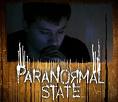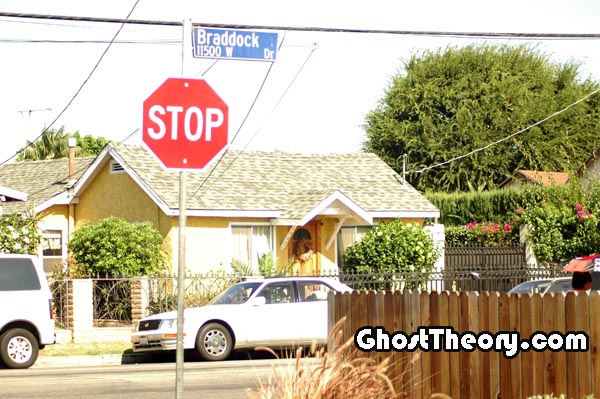 Fiona claims to be able to feel the pain and sensation that other people are experiencing when in front of her. Whether it is in real life or in a movie, Fiona’s body has been said to exhibit signs of over-sensitivity Mirror-Touch phenomena. Basically her brain is wired to mirror that emotions and physical acts she sees.
Fiona claims to be able to feel the pain and sensation that other people are experiencing when in front of her. Whether it is in real life or in a movie, Fiona’s body has been said to exhibit signs of over-sensitivity Mirror-Touch phenomena. Basically her brain is wired to mirror that emotions and physical acts she sees.
This might sound like a page right out of science fiction but neuroscientists have studied several cases in which people claims hyper-sensitivity to the environment that surrounds them. This mysterious “extra sense” opens the doors to many theories as to what the mind is capable of. If you can sense what other people are feeling, is it too far fetched to say that maybe you can also project what you are feeling and/or thinking?
If I was diagnosed with Mirror-Touch capabilities I would probably stay away from boxing films, slasher movies and all the MTV Jackass movies. I’d probably stick to the Debbie Does … series and never leave my pad. 24/7.
Full source: Guardian UK
15 commentsWhen I watch a film, I feel as if I’m in starring in it. The Girl With The Dragon Tattoo was horrific. My friend invited me to see it, and I had no idea what it was about – I normally try to avoid dramas and thrillers. When the character Salander was tortured, I felt as if my body was being beaten; I could physically feel the sensation of being attacked. It’s the same with emotions. If someone is happy, it’s like hearing an orchestra and I feel extreme excitement and joy. This is the reality of living with “mirror-touch” synesthesia, a rare neurological condition that causes sufferers to hyper-empathise.
My earliest memory of mirror-touch is standing in my parents’ garden in South Africa, aged six, watching butcher birds hang mice on the wire fence. I felt the tug on my neck and spine; it was as if I was being hanged. I remember crying to my mum, trying to explain what had happened. I wanted her to understand that I could see emotions as colours, and feel sounds; that someone else’s anger felt like heat running between my chest and stomach. “You’re just oversensitive, Fiona,” she said.
Eventually, she took me to the doctors, but they didn’t have any answers. My GP told my mum I had a lot of nervous energy. After that, she turned to the church. She’d take me in and have people place their hands on my body and pray for me.
As the years went on, I struggled to cope with normal life. I was constantly crying – not because something had happened to me, but because I had seen someone else crying or felt someone else’s pain. Watching someone eating, I would taste and feel their food in my mouth, and I struggled with weight loss because I always felt full. I could walk into a room and tell you who has depression, who is angry and who has just had good news. My reactions vary: sometimes I see colours and feel vibrations, other times I sense a change in temperature or hear a particular sound. The feelings that I draw from other people stay with me for days and invade my dreams, making it difficult to sleep.
I went from being a solitary and withdrawn child to a teenager who was too scared to date. I ended up marrying the first man I went out with at 20, and moving to the UK. Sex was very difficult. I would experience the physical sensation of intercourse at random intervals for days after. I never tried to explain it to my first husband. He said the same as everybody else: I was “nervous”, “anxious”, “oversensitive”. We broke up after two years.
It wasn’t until I moved to LA to study in 2005 that I finally found the courage to seek help. One day, on a shopping trip with my then-boyfriend Gary, I stayed in the car and saw someone get punched. Gary returned to find me unconscious. He told me I had to talk to a doctor about it, and I went to hospital for tests. Although they didn’t diagnose me with mirror-touch, for the first time in my life people were taking my problems seriously.
Back in the UK, I began researching my symptoms. I found that feeling sounds and colours was known as synesthesia, and wondered whether my condition was connected. I tracked down a UK team of doctors specialising in the study of synesthetes, and in 2008 I was finally diagnosed with mirror-touch.
Neuroscientists think mirror-touch synesthesia is caused by over-activity in our mirror-touch system – a network of regions in the brain that become active when we see another person being touched. A normal person flinching when they see an accident is thought to be the normal work of this system. When I physically experience other people’s pain, my system is in overdrive.
Getting a diagnosis was a huge relief. I have spent a lot of my life feeling like a freak, and now I know that it’s not my fault. I have been given medication to decrease my sensitivity, and I’m sleeping better. I now live alone, but have lots of understanding friends and I’m ready to meet a new partner.
As a child, I didn’t have the self-acceptance I do now. I’m learning to have fun with my mirror-touch. When I watch a bird in the sky, I feel like I’m flying. That’s a joy. And my friends love how sensitive I am. I’m hugely considerate of other people – after all, I know exactly what it feels like to be them.




